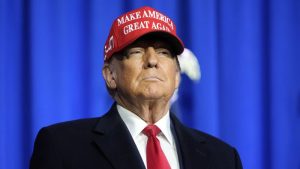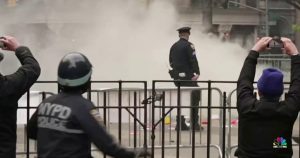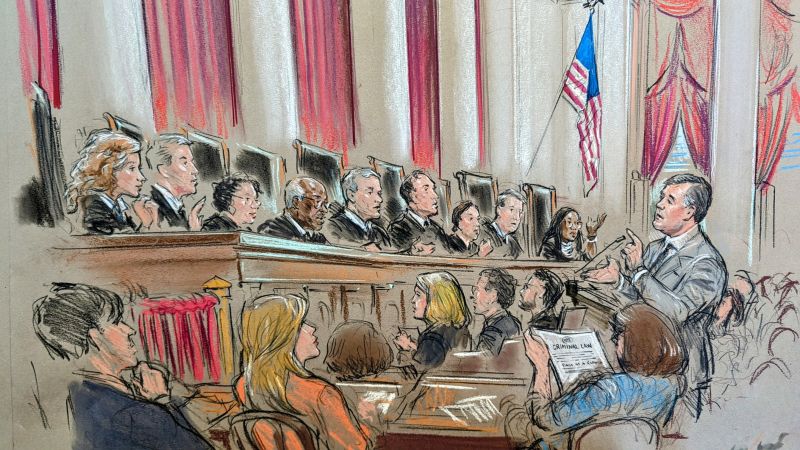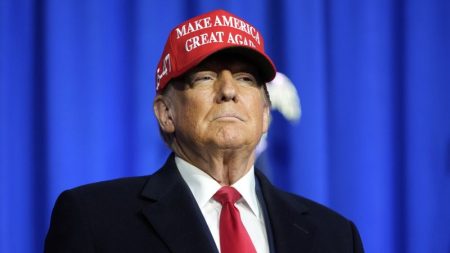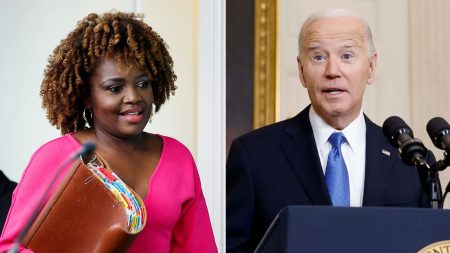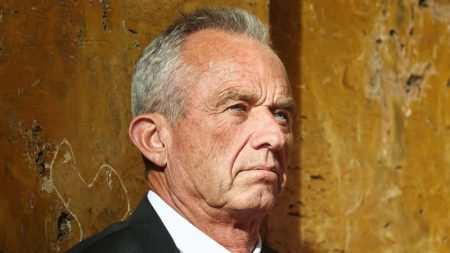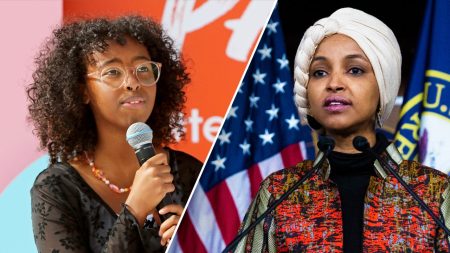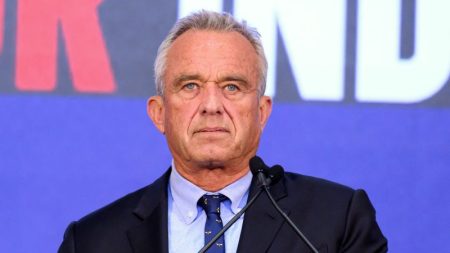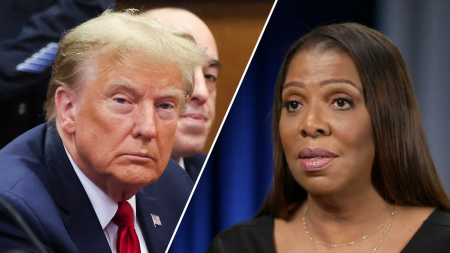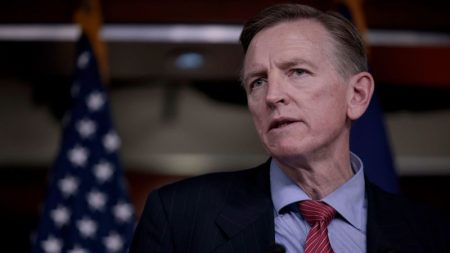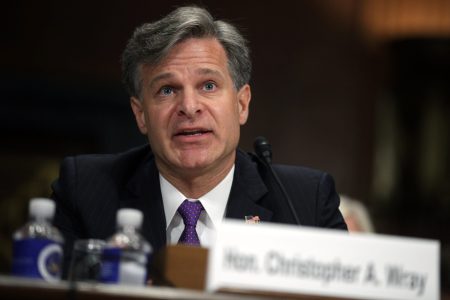The Supreme Court’s conservative majority is considering tossing out a charge against hundreds of individuals involved in the January 6, 2021, Capitol riot. The charge, which carries a maximum prison sentence of 20 years, was questioned by most justices during oral arguments. Critics argue that the law, enacted in response to the Enron scandal, was not intended for situations like the insurrection at the Capitol in support of a losing president. The court’s decision, expected by July, could impact around 350 individuals charged with obstructing an official proceeding, including former President Trump.
The appeal was brought by a former Pennsylvania police officer, Joseph Fischer, who was charged with multiple crimes for his involvement in the Capitol riot. Fischer’s attorney argued that prosecutors overstepped by using a law meant to prevent evidence tampering to charge his client. The focus of the oral arguments was on a technical and legalistic debate surrounding the language of the law, particularly the word “otherwise.” Justices questioned whether the law was intended to encompass a broader range of actions, including physical intrusion, that would obstruct a proceeding. Chief Justice John Roberts pushed back on the government’s attempt to separate different provisions of the law during arguments.
The potential impact of the Supreme Court’s decision extends beyond the Capitol riot cases. It could also affect the federal election subversion criminal case against former President Donald Trump, who was charged with the same obstruction crime. More than 100 individuals have already been convicted and sentenced for their involvement in the Capitol attack, raising concerns about the potential for cases to be reopened if the charge is dismissed. The court’s ruling is expected to have significant ramifications for those charged with obstructing an official proceeding and could potentially lead to the reopening of cases.
The court’s decision is expected by July and could force the Justice Department to revisit cases involving hundreds of individuals charged with obstructing an official proceeding during the Capitol riot. Justices expressed concerns about the broad interpretation of the law and whether it was intended to cover situations like the insurrection at the Capitol. The argument centered on the word “otherwise” in the law and its implications for defining what actions constitute obstruction of a proceeding. Chief Justice Roberts and Justice Kavanaugh both questioned the government’s interpretation of the law during oral arguments.
The focus of Tuesday’s oral arguments was on a technical and legalistic debate surrounding the language of the law used to charge individuals involved in the Capitol riot. Critics argue that using the law intended for preventing evidence tampering in cases like the insurrection at the Capitol was an overreach by prosecutors. The potential implications of the Supreme Court’s decision go beyond the Capitol riot cases, as it could impact federal election subversion cases and other instances of obstruction of an official proceeding. Justices questioned the scope of the law and its application to different actions that could obstruct a proceeding, leading to a broader discussion on legal interpretation and the intent of the statute.
The oral arguments before the Supreme Court focused on the interpretation of a law enacted in response to the Enron scandal and its application to cases involving individuals charged with obstructing an official proceeding at the Capitol. The debate centered on the word “otherwise” in the law and whether it was meant to encompass a broader range of actions, including physical intrusion, that obstruct a proceeding. Justices expressed concerns about the broad interpretation of the law and questioned the government’s argument during oral arguments. The court’s decision, expected by July, could have significant ramifications for the ongoing cases related to the Capitol riot and future cases involving obstruction of an official proceeding.
